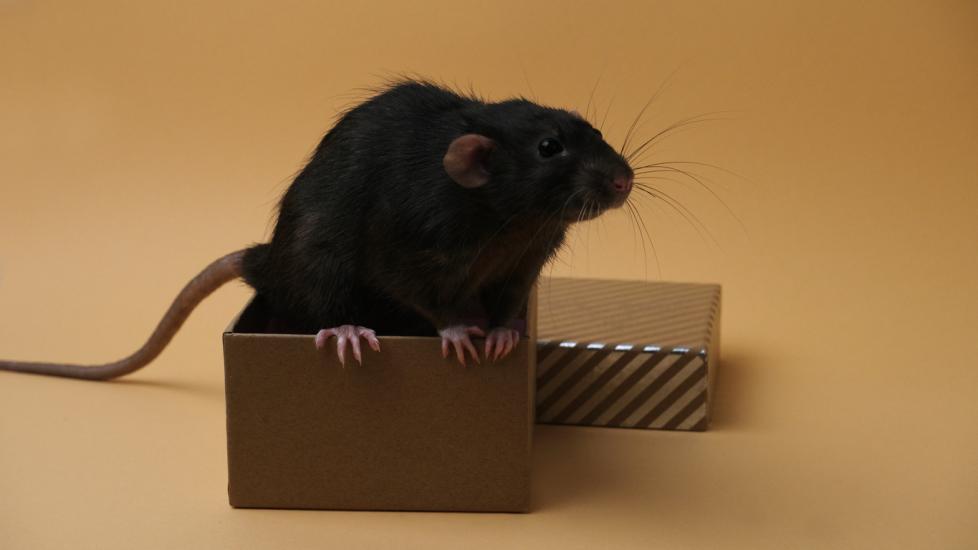Viral Respiratory Infection in Rats
Lymphocytic Choriomeningitis Virus in Rats
Lymphocytic choriomeningitis is a viral infection that is relatively common in rats. The usual sources of the virus are other infection-carrying rodents, such as guinea pigs, hamsters, and mice – both domesticated and wild. The infection can be contracted through contact with infected saliva, or through contaminated urine or feces, usually from common house mice. Shedding of viruses into urine is very common and highly contagious.
Another common source of infection is contaminated air, by which the infected particles of the virus may remain suspended in the air after an infected animal has sneezed, making it possible for a healthy rat to inhale the virus.
The infected rat may have no symptoms indicative of the infection it is carrying, but will still be able to transmit the virus to other rats and rodent species. In addition, it is important to take note that the lymphocytic choriomeningitis infection is zoonotic in nature, meaning that is can be transmitted to human handlers if proper precautions are not taken in the care and handling of infected rodents.
Human handlers who acquire this virus from their pets will usually have symptoms of flu with sneezing, coughing, sniffling, high temperature and weakness. The infected human may also show signs of nervous system involvement, with viral meningitis, encephalitis (swelling of the brain), and inflammation of the spinal cord.
There is no effective treatment for lymphocytic choriomeningitis in rats, and more often than not euthanasia is recommended for the prevention of further spread of the disease to humans and animals. Proper decontamination of the environment in which the infected rat was living should be closely adhered to in order to prevent later spread to humans and animals.
Symptoms and Types
Although there are often no symptoms of lymphocytic choriomeningitis in rats, human handlers who acquire the infection from their pet rats may show symptoms of influenza in the initial stages and nervous system involvement in the advanced stages, with brain fever, meningitis, encephalitis and inflammation of the spinal cord.
Recommended Products
Causes
- Contact with infected rodents in the pet store
- Contact with other pets which are infected
- Contact with infected urine or feces
- Inhalation of viral particles by air contamination (made so through sneezing by infected rodents)
Diagnosis
Since rats will seldom show any outer symptoms of lymphocytic choriomeningitis, your veterinarian will need to diagnose the disease based on the results of urine tests, and laboratory results from fecal and nasal discharge samples that were taken in the initial physical examination.
Treatment
Unfortunately, there is no standard treatment available for this viral infection. The only recommendation is to euthanize the infected rat to prevent further spread of the virus.
Living and Management
Preventing transmission to humans and other animals is a primary concern. If you choose not to euthanize your infected rat, you must take the utmost care in maintaining hygienic conditions, with regular cleansing and disinfecting of the cage and surrounding environment. If you do choose euthanasia, you will still need to thoroughly disinfect your rat's living space in order to prevent the spread of infection after the death of your rat.
Prevention
Avoid contact and protect your rat from contact with other rats or rodents, both wild and domestic rodents, and both at home, in pet stores, and with friends. If you do handle rodents outside of the house, take care to thoroughly disinfect your hands and clothes before handling your own rat. Maintaining hygienic living conditions for your rat by regularly cleansing and disinfecting its cage and cage items can also help in preventing this virus from coming into contact with your rat.
References
Featured Image: iStock.com/Oksana Vainrub




